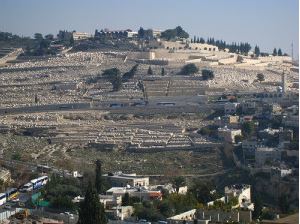As activists attending the ZOA Student Leadership Mission to Israel, we have been privileged to witness first-hand the vibrant, inclusive democracy we know as the Jewish state. Our love for the land of Israel and its people has grown exponentially and our knowledge of the state’s history and current events has expanded greatly. Nonetheless, we have been left wondering how to best apply the knowledge and experiences we have gained from this trip to enhance our Israel advocacy on campus. After all, many people see no reason to be enthusiastic about the state of Israel since they have no personal investment in the country. Accordingly, we must do more to make people identify with the Jewish state and care about its citizens’ well-being. I strongly believe that sharing personal narratives is one of the best methods of engaging others– a true catalyst for understanding and empathizing with the Israeli narrative.
My experiences on the ZOA Student Leadership Mission to Israel have reinforced this view. For instance, Zach Stern, the Managing Director of ZOA Campus, gave a wonderful presentation on effective Israel advocacy messaging, specifically focusing on how to discuss Operation Protective Edge. He stressed that we must share pictures, videos, and stories of those subjected to violent war crimes perpetrated by Hamas, a Palestinian-Arab U.S-designated terrorist organization controlling Gaza. The experiences I have gained on the ZOA Student Leadership Mission to Israel and other trips to Israel have equipped me to do just that.
The following is one of the stories I often share on campus that captures people’s emotions and, consequently, their curiosity. Two summers ago, I visited Israel on a five week long NCSY program for American high-school students called TJJ Ambassadors. We arrived in the holy land merely a week after Naftali Frenkel, Gilad Shaer, and Eyal Yifrah’s bodies were found. These innocent Jewish teenagers had been kidnapped and brutally murdered by Hamas. During this intense time, on the very first night of the trip, my group was instructed how to respond to the threat of a rocket attack. We were told that if a siren rings, we will have approximately one minute and thirty seconds to run and lock ourselves in the nearest bomb shelter. In the middle of the night, Hamas fired a rocket into Jerusalem. I was woken up by the sound of screeching sirens and program advisors frantically knocking on the door to alert us that we had to seek refuge in a bomb shelter. Although the rocket ultimately landed in an area more north of the hotel I was staying at, my peers and I were not left unscarred. Rather, the rocket instilled in us a sense of fear and vulnerability that lasted for the rest of our stay in Israel.
It is this personal experience that I use to introduce Operation Protective Edge to my peers. I explain that after Israel had been bombarded with over 14,000 rockets like the one shot in my direction, the Israel Defense Force (IDF) initiated Operation Protective Edge to destroy Hamas terrorist headquarters, weapons storage units, and rocket launchers in Gaza. I emphasize the severity of the issue by stressing that even I, as an innocent tourist, became a target for Hamas and was forced to fear for my life. I call on people to imagine how they would feel living in such vulnerable conditions. In other words, rather than allowing people to mistakenly perceive Operation Protective Edge as an unjust invasion of Gaza, I explain that the war was an ethical response necessary to prevent Hamas from continuing its reign of terror that many Israeli civilians have been forced to endure.
Another story I like to share involves the city of Sderot. On my trip to Israel during Operation Protective Edge, one day was dedicated to running a carnival for children living in Sderot– a city constantly bombarded by Hamas rockets. This event was intended to raise the spirits children living in such hostile conditions. Unfortunately, because of security threats, my program decided to cancel the carnival. After intense debate, however, we miraculously managed to send our bus driver to pick up the families from Sderot and drive them up further north for the carnival. The entire event was an enlightening and highly rewarding experience that I have carried with me ever since. Nonetheless, I have longed for the opportunity to visit residents of Sderot in their own city.
Fortunately, on the ZOA Student Leadership Mission to Israel, this dream was realized, as I was finally able to visit the inspiring city of Sderot. We traveled to a police station, where the sight of rockets that have previously hit the brave city alarmed and enraged me. I was standing before the very rockets that had prevented me from visiting the children of Sderot in 2014. However, this time around, I had the privilege of visiting a kindergarten in Sderot and delivering gifts to the children. This interaction filled me with joy, as I was able to not only comprehend, but also deeply appreciate the enhanced security Operation Protective Edge helped facilitate for communities like Sderot in Israel.
The experiences I have gained from my trips to Israel will undoubtedly enhance my performance as an Israel advocate. More specifically, I can now more effectively use personal stories to engage people who would typically be ambivalent to the Israeli narrative. Rather than offering impersonal facts and statistics alone, I urge all pro-Israel student activists who have been able to visit Israel to make the personal the political. Share your personal experiences in relationship Israel to make others empathize with and become personally invested in the Jewish state. Together, we can cultivate a powerful sense of solidarity between Americans and Israelis on campus.
